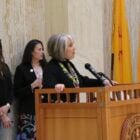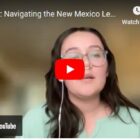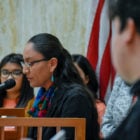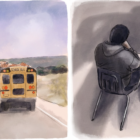Education
Governor says she’ll push for tribal education trust fund
|
As New Mexico lawmakers decide how to prioritize spending during another year of historic revenue, Pueblo leaders say they “do not appreciate” being forced to choose between a tribal education trust fund and money for infrastructure on tribal lands.
A letter Gov. Michelle Lujan Grisham sent late last week asking for their input on funding priorities put them in that position, they told her in a letter Wednesday. Having to pick one or the other is “fundamentally wrong and adverse to the commitments of partnership that we have made with you and state legislative leadership,” wrote the All Pueblo Council of Governors, which represents 19 Pueblos in New Mexico and one in Texas.
Instead, each initiative should be funded at $50 million, the council wrote.
In response to questions from New Mexico In Depth on Thursday, the governor’s office provided the letter from the council and said the governor will work with the Legislature to deliver on the council’s request.
It’s the first indication that Lujan Grisham will back the trust fund proposal, which would give tribes more money and control over how they educate their own children.
But it’s not a total win.
Rep. Derrick Lente, D-Sandia Pueblo, stands in his office at the Roundhouse on Jan. 25, 2023. Lente, chair of the House Taxation and Revenue Committee, is sponsoring a proposal designed to give tribes more money and control over the education of Indigenous children. Credit: Bella Davis/New Mexico In Depth
The fund’s sponsor, Rep. Derrick Lente, D-Sandia Pueblo, is seeking a $100 million trust fund, rather than $50 million.
The House Budget includes $50 million, following the Legislative Finance Committee’s recommendation before the legislative session began.








